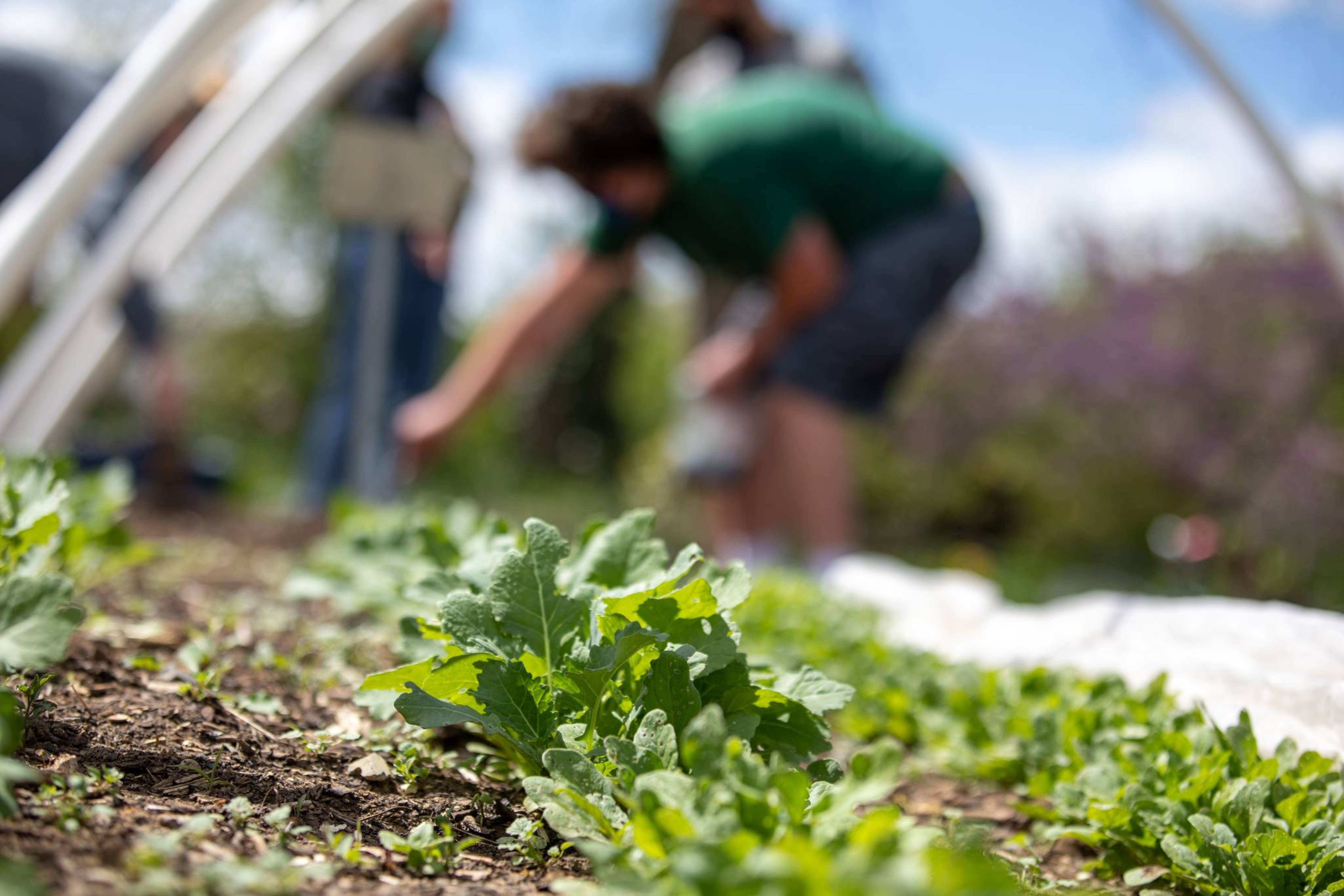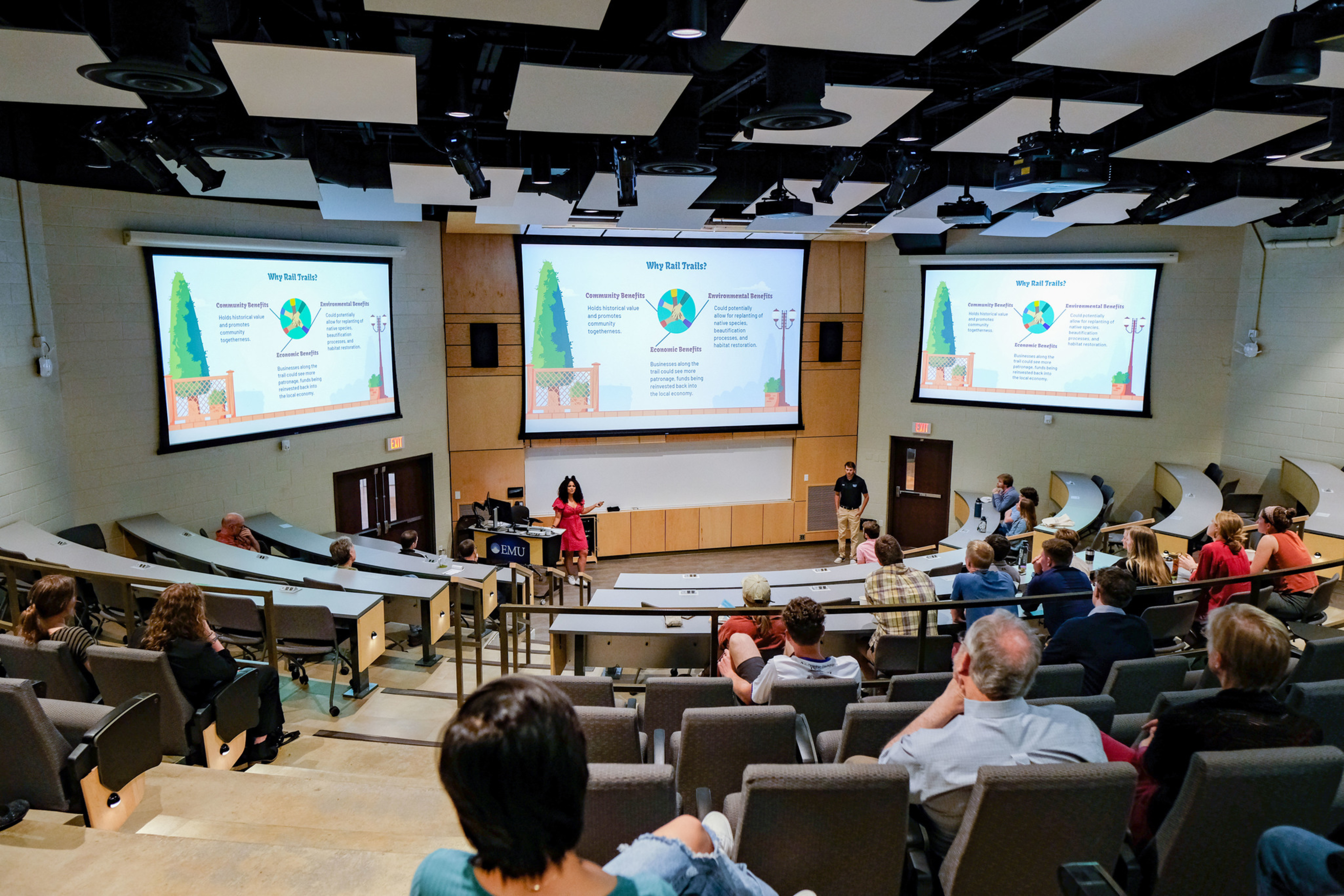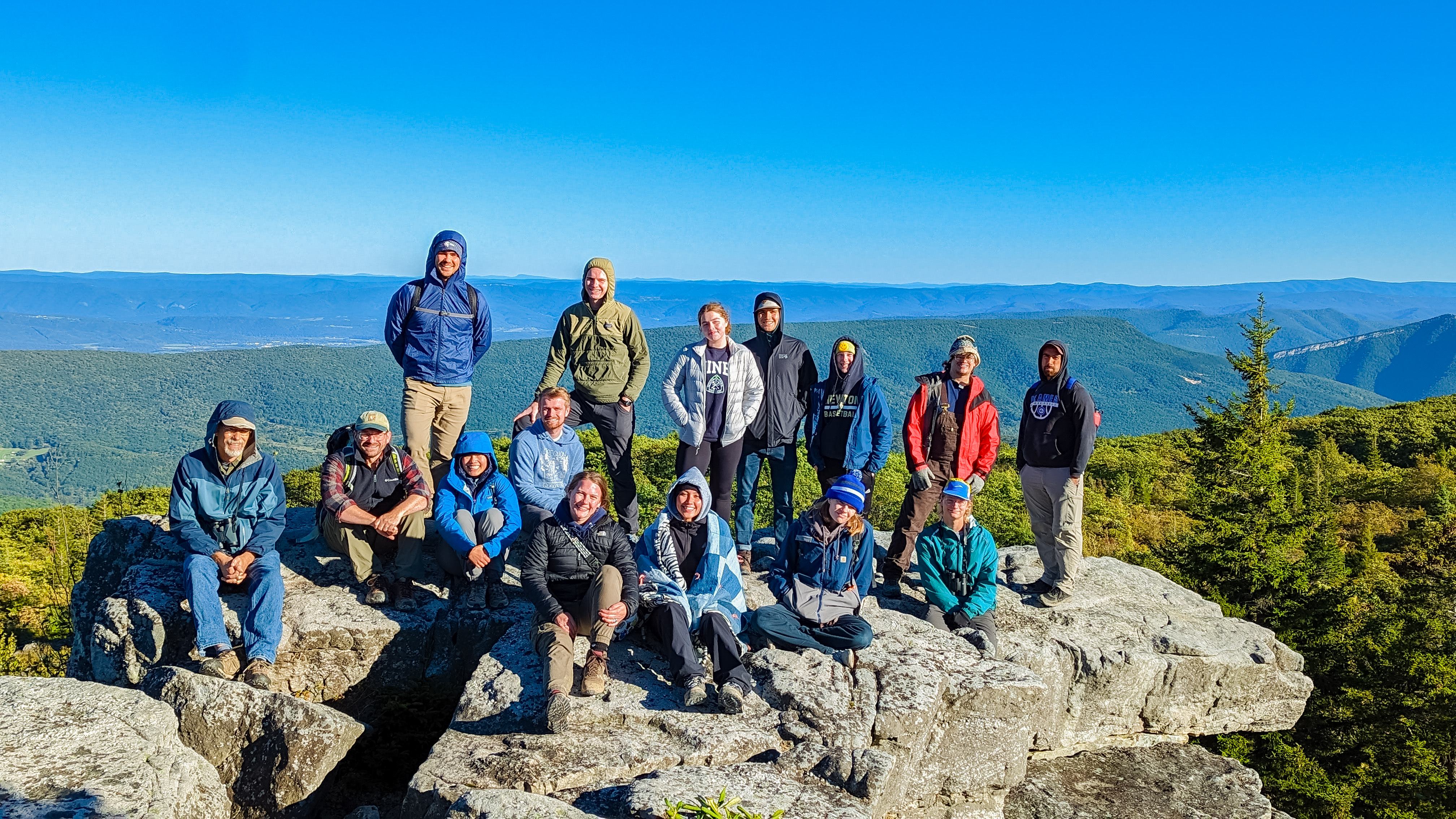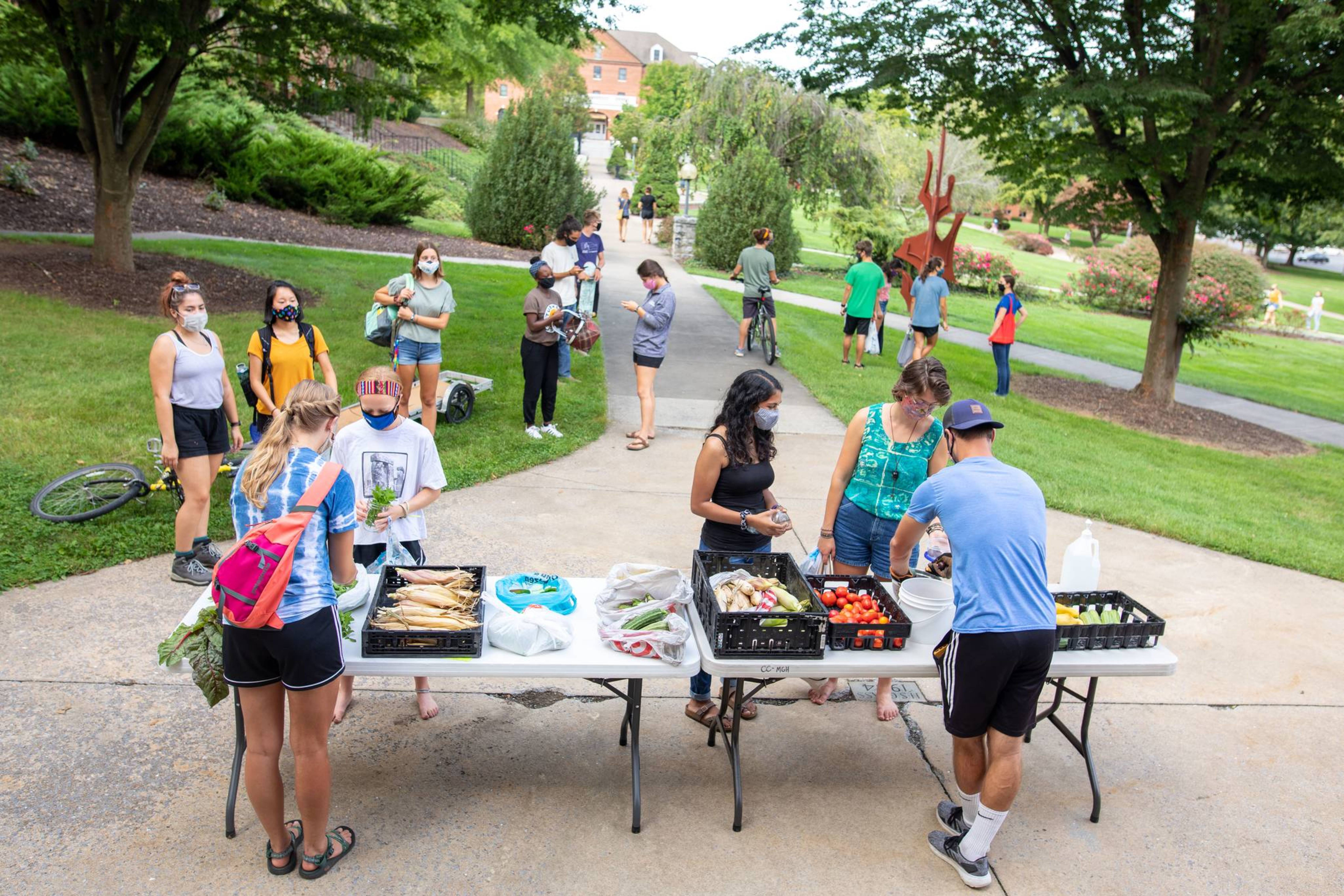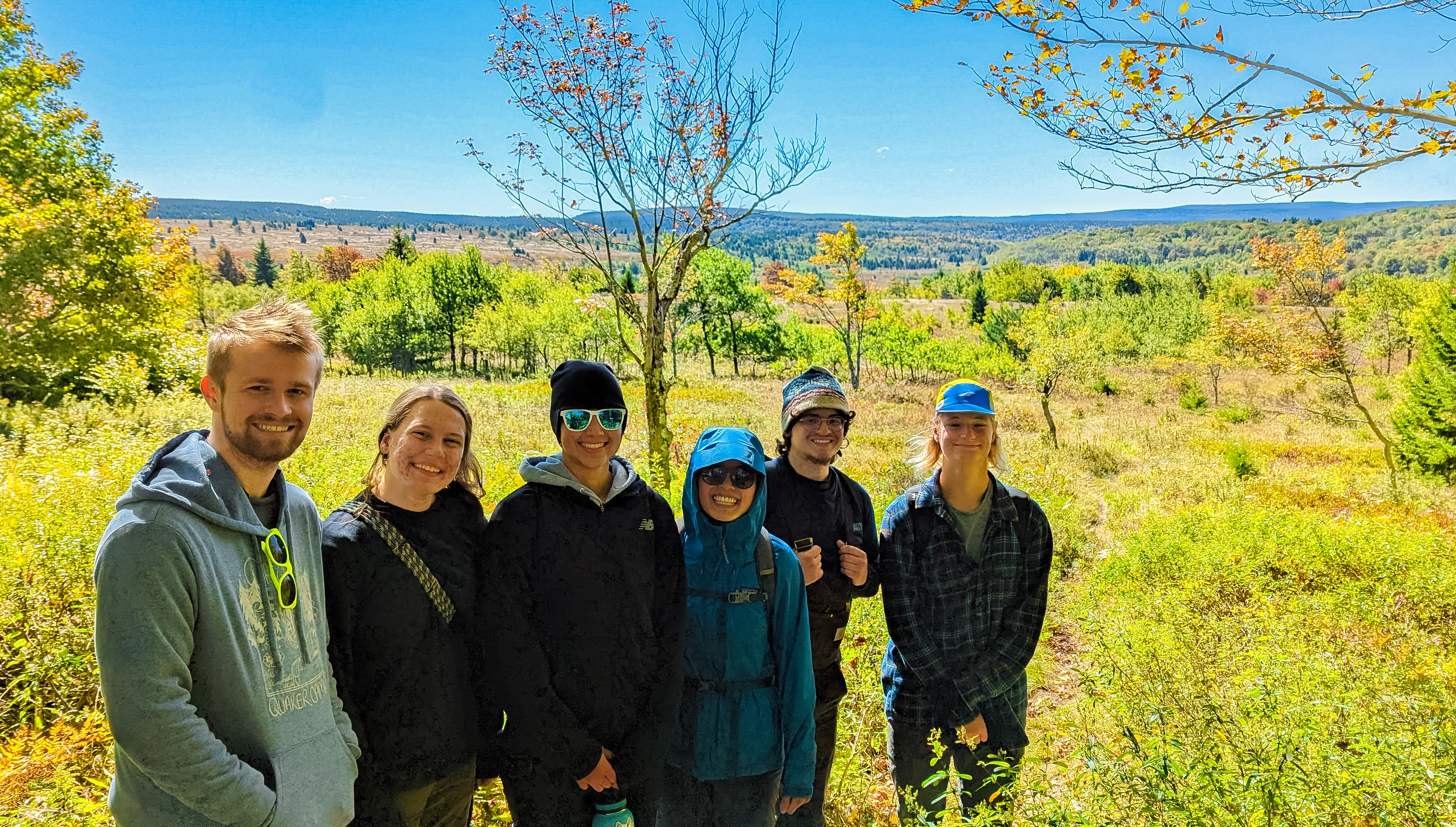Student Research and Senior Capstones
The capstone course centers around activities that help students reflect on their knowledge about sustainability and bring together threads from diverse disciplines to create an integrated understanding of contemporary sustainability issues. Students work as a group on a common research project. This case study gives students a concrete portfolio example of the multifaceted nature of a “real life” sustainability issue.
Research Opportunities
In addition to their capstone experience, students often collaborate with faculty on long-standing research projects, sometimes presenting research at the Virginia Academy of Sciences. Their abstracts have been published in the peer-reviewed Virginia Journal of Science.
In 2014 several professors launched a stream restoration project funded by the National Fish and Wildlife Federation. Science, peacebuilding and digital media majors are working together to document and restore streams in a rural community about 30 miles from campus.
Biology professor Doug Graber-Neufeld worked with the National Science Foundation for years to take students to Cambodia and Thailand to work alongside local scientists on issues of drinking water quality and sewage treatment. Professor Jim Yoder collaborates in-the-field with Shenandoah National Park research botanists and interested undergraduate students on studies of rare plant species in the area.
Students may compete for Kauffman-Miller Research Awards, up to for $2500 for summer research supervised by EMU faculty.
Recent Capstones
New Municipal Stormwater Management Policy
A group of students in this course examined a recently adopted stormwater ordinance through ecological and sociological lenses. The students attended meetings and conducted interviews with city officials, collected data from public documents and performed analyses using GIS software. Their results were shared with the city public works department and other relevant institutional stakeholders.
Student theses completed during this course:
- “The Importance of Understanding Social Context in Successful Stormwater Management”
- “Stormwater Management: The Effectiveness of Public Policy in Driving the Shift to ‘Green Innovations’”
- “The Harrisonburg Stormwater Utility Fee, the Effectiveness of Mitigation Practices, and EMU’s Future Role in Stewardship”
- “Impervious Surface and Stormwater Management: A Review of Current Understanding and Initiatives in Harrisonburg, VA”
Proposed wilderness areas in the George Washington National Forest
Students in this capstone worked with Friends of Shenandoah Mountain to develop informational material for several proposed wilderness areas in the nearby George Washington National Forest. Much of the discussion centered on how this interacts with recent proposals for windmills on nearby ridgelines. The main outcome of this project was GIS-based informational material, which was made available to the Friends of Shenandoah Mountain.
Student theses completed during this course:
- “Wind Power on Shenandoah Mountain”
- “An Analysis of Community-Based Projects as a Model for Wind Energy Development”
- “Offshore Wind and the Way of the Future”
Potential hydrofracking site in Rockingham County
Students in this course worked with a group of residents from the Bergton area of Rockingham County on the issue of hydrofracking. A site near Bergton was originally proposed as a hydrofracking site, which would have been the first hydrofracking site in the state of Virginia. Gas leases have been signed, but county permits have not been issued, and at present there is no drilling.
Students had extensive discussions with an informal coalition of Bergton area residents who were concerned about hydrofracking. From these discussions, a public viewing of the movie “Gasland” was organized. Following the movie, students facilitated an open discussion period for community members.
Student theses completed during this course:
- “What Landowners Should Know about Natural Gas Leases”
- “Shale Gas and the US Energy Policy: A Reconsideration of Factors and Goals”
- “Comparative Study: Hydraulic Fracturing in Virginia”
This project was the catalyst for a baseline water monitoring project undertaken by EMU research students in collaboration with the Shenandoah Valley Network and the Friends of the North Fork of the Shenandoah River.



